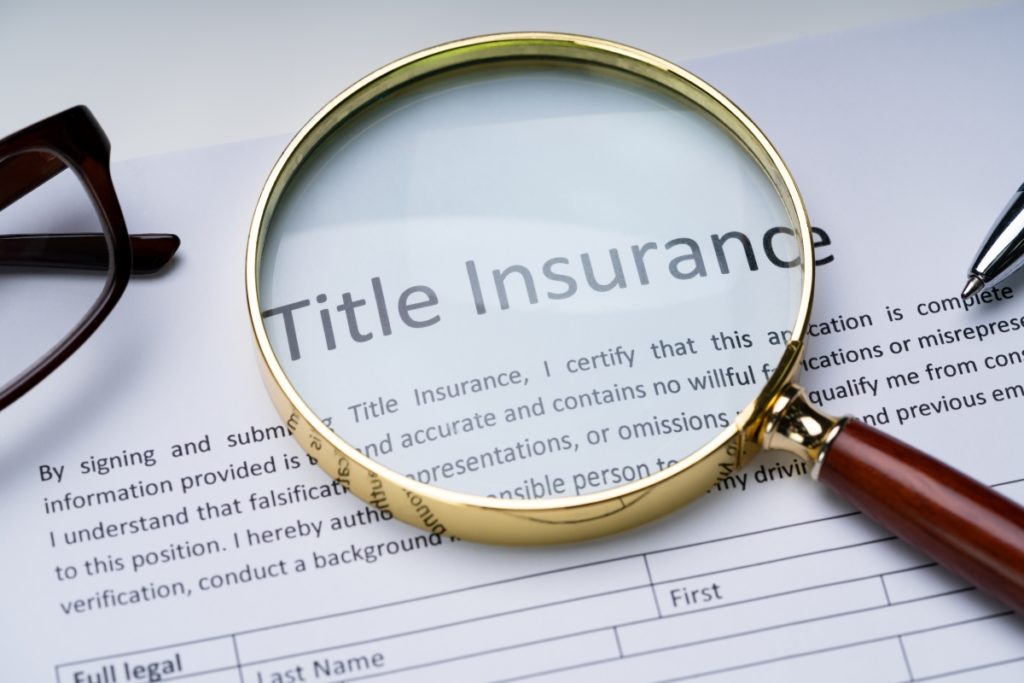When buying a house, title insurance is a piece of protection that most lenders require. It works to protect both homebuyers and lenders.
Learn more about title insurance and how it affects you as a homebuyer.
What is a title
To understand title insurance, it’s vital first to understand what a title is; according to Investopedia, a title is “a document that shows legal ownership to a property or asset.” A title can represent either the ownership of an intangible asset like a trademark or a real (tangible) asset like a house or car.
When buying a home, a title represents all of the legal rights that have to do with owning and using a house. It isn’t a piece of paper – it’s more of the concept used to establish the homeowner’s property ownership rights. When you buy a house, you get the title for the house; when you sell a home, the title is transferred to the next owner. These transactions usually happen through a title company, which works closely with your real estate agent and lender.
All real estate transactions need a clear title, which means that the property is free from liens (debt held against the house).
What is title insurance
Title insurance, then, is the protection of the title. It’s a form of insurance that protects both lenders and homebuyers from any financial loss that might come from defects in a property title. While regular insurance protects against current events, title insurance protects against claims for past occurrences.
There are two primary types of title insurance. Most commonly, a borrower purchases lender’s title insurance, which the borrower pays for to protect the lender. The other less common type is owner’s title insurance, which the seller typically pays for as a form of protection for the buyer’s equity in the property.
Title insurance protections
Like any kind of insurance, claims are filed when issues come up. Title insurance claims protect lenders and buyers from the following issues:
- Loss or damage from liens, encumbrances, or defects in a property’s title
- Back taxes, liens from mortgage loans, easements, conflicting wills, and home equity lines of credit
- Ownership by a different party
- Incorrect signatures, forgery, fraud, and otherwise flawed records
- Unrecorded easements or other restrictive covenants that reduce value
- Outstanding lawsuits with judgments against the property
How to buy title insurance
After going under contract to buy a house, either an escrow or closing agent starts the insurance process; typically, both the lender and owner have policies to make sure that both parties are protected. At closing, the parties purchase the title insurance with a one-time fee included in the home’s closing costs.
Usually, owner’s title insurance costs between $500 and $3500, depending on several factors: the purchase price of the house, the state you reside in, and the insurance provider you choose.
Why title insurance matters
Lenders typically require title insurance, but it exists for good reason for homebuyers as well. It helps to prevent financial loss when something goes unexpectedly wrong.
For example, after buying a house, it’s possible for some issues to pop up after closing that have to do with unpaid property taxes from the home’s last owner. Thanks to title insurance, the buyer would be safe from the back taxes. Without title insurance, those back taxes would be due out of pocket, and the house could even be at risk of being taken away. Instead, title insurance ensures that a claim would be filed and protection is offered.
Title insurance is good for as long as you own the property.
Have any questions?
If you’d like to learn more about title insurance or the home buying process, connect with the team at Sopris Realty today. Contact us online or give us a call at 970-945-7677.

